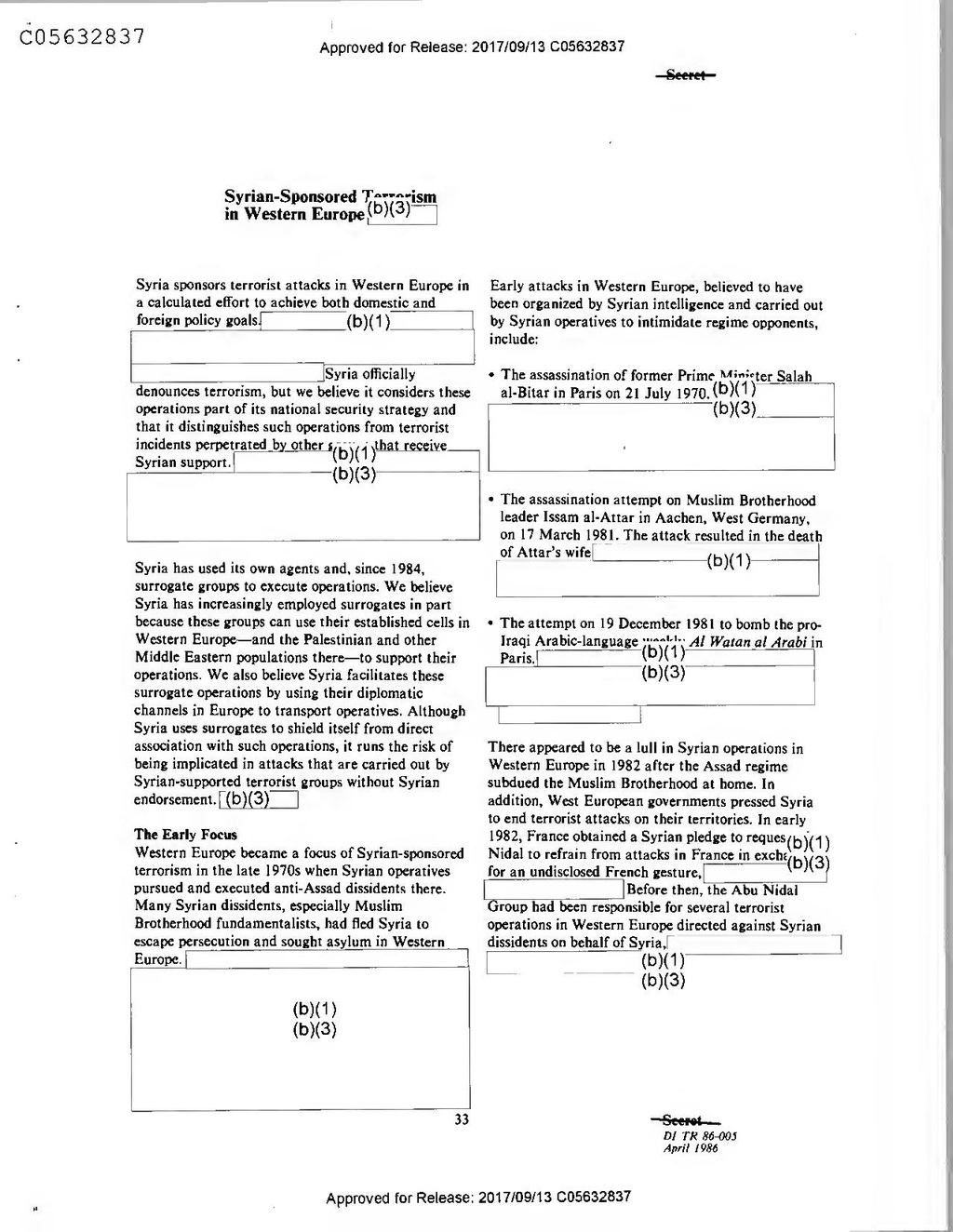Seeret
Syrian-Sponsored Terrorism in Western Europe (b)(3)
Syria sponsors terrorist attacks in Western Europe in a calculated effort to achieve both domestic and foreign policy goals.
(b)(1).
Early attacks in Western Europe, believed to have been organized by Syrian intelligence and carried out by Syrian operatives to intimidate regime opponents, include:
Syria officially denounces terrorism, but we believe it considers these operations part of its national security strategy and that it distinguishes such operations from terrorist
• The assassination of former Prime Minister Salah al-Bitar in Paris on 21 July 1970. (b)(1)
(b)(3).
incidents perpetrated by other f(b)(1) that receive Syrian support.
(b)(3)
• The assassination attempt on Muslim Brotherhood
leader Issam al-Attar in Aachen, West Germany, on 17 March 1981. The attack resulted in the death of Attar's wife
(b)(1)
• The attempt on 19 December 1981 to bomb the proIraqi Arabic-language im Al Watan al Arabi in Paris. I
(b)(1); (b)(3)
Syria has used its own agents and, since 1984, surrogate groups to execute operations. We believe Syria has increasingly employed surrogates in part because these groups can use their established cells in Western Europe—and the Palestinian and other Middle Eastern populations there—to support their operations. We also believe Syria facilitates these surrogate operations by using their diplomatic channels in Europe to transport operatives. Although Syria uses surrogates to shield itself from direct association with such operations, it runs the risk of being implicated in attacks that are carried out by Syrian-supported terrorist groups without Syrian endorsement.[(b)(3)
The Early Focus Western Europe became a focus of Syrian-sponsored terrorism in the late 1970s when Syrian operatives pursued and executed anti-Assad dissidents there. Many Syrian dissidents, especially Muslim Brotherhood fundamentalists, had fled Syria to escape persecution and sought asylum in Western Europe.
There appeared to be a lull in Syrian operations in Western Europe in 1982 after the Assad regime subdued the Muslim Brotherhood at home. In addition, West European governments pressed Syria to end terrorist attacks on their territories. In early 1982, France obtained a Syrian pledge to reques (b)(1) Nidal to refrain from attacks in France in excha for an undisclosed French gesture,
(b)(3) Before then, the Abu Nidal Group had been responsible for several terrorist operations in Western Europe directed against Syrian dissidents on behalf of Syria,
(b)(1) (b)(3)
(b)(1) (b)(3)
33
Secret DI TR 86-005 April 1986
Approved for Release: 2017/09/13 C05632837
